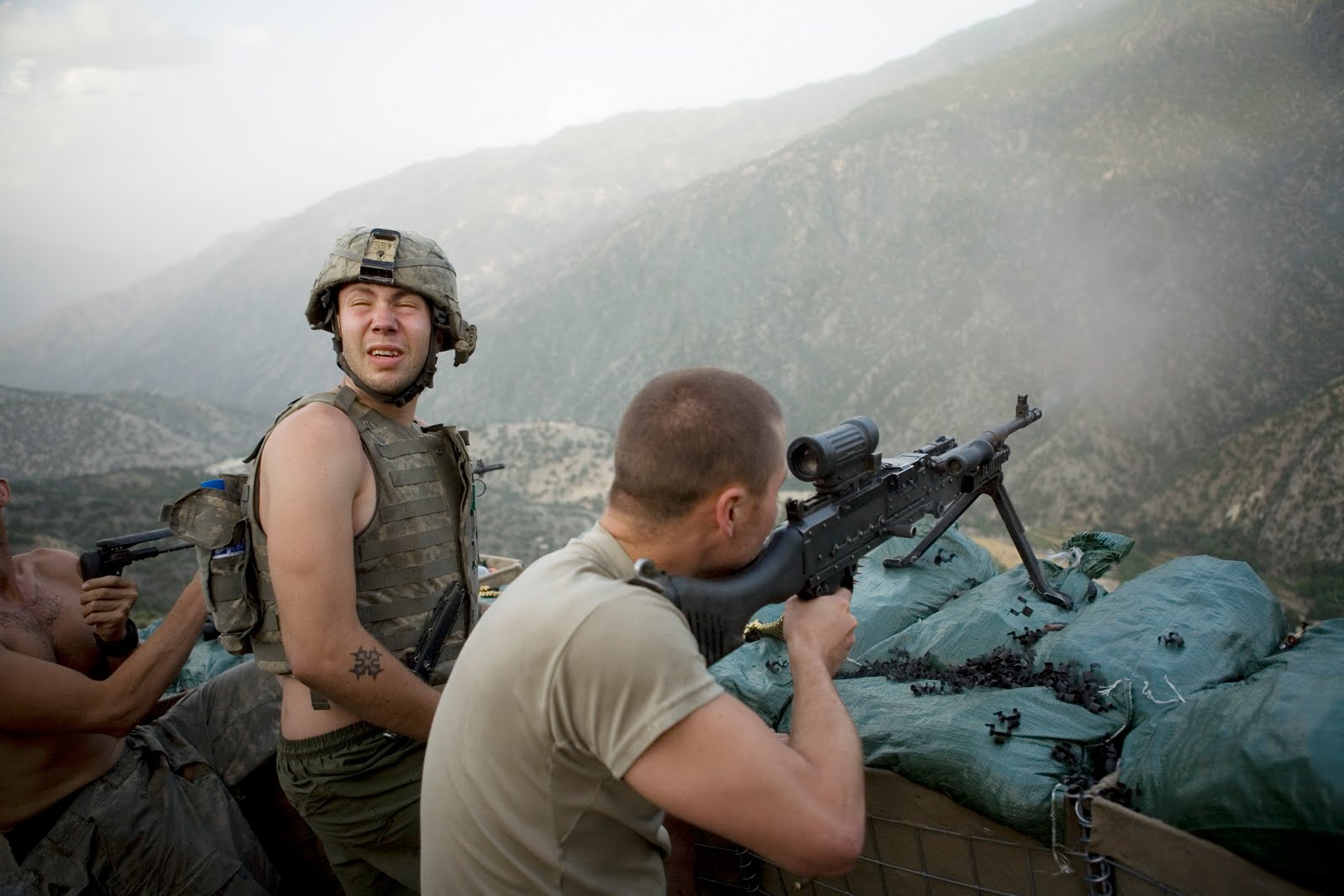Restrepo stands as one of the most compelling documentaries of the 21st century, captivating audiences with its raw and unfiltered portrayal of war. Released in 2010, this film offers a visceral insight into the experiences of soldiers deployed in Afghanistan's Korengal Valley, one of the most dangerous postings for American troops. As we move into 2024, the relevance of Restrepo remains as potent as ever, offering lessons and reflections on the nature of conflict, camaraderie, and the human spirit. This article aims to delve into the key aspects of Restrepo, providing insights and tips on why it continues to be a significant piece of filmmaking.
The Story Behind Restrepo
Restrepo is the brainchild of journalist Sebastian Junger and photojournalist Tim Hetherington, who spent a year embedded with the Second Platoon, Battle Company, in Afghanistan. The documentary is named after PFC Juan Restrepo, a platoon medic who was killed in action, and who the outpost is named in honor of. The film chronicles the daily life of soldiers stationed at Outpost Restrepo, capturing their fears, struggles, and moments of levity amidst the chaos of war. Junger and Hetherington's commitment to authenticity is evident in their decision to eschew narration, allowing the soldiers' voices and experiences to take center stage.
Why Restrepo Stands Out
In a sea of war documentaries, Restrepo distinguishes itself through its immersive approach and unflinching honesty. Instead of focusing on the politics or strategies of war, the film zeroes in on the personal experiences of the soldiers. This intimate perspective offers viewers a rare glimpse into the emotional and psychological toll of combat. The absence of narration or political commentary allows the raw footage to speak for itself, making the audience feel as though they are right there with the soldiers in the Korengal Valley. This unique approach has earned Restrepo numerous accolades, including the Grand Jury Prize for Best Documentary at the Sundance Film Festival.
The Impact of Restrepo on Its Audience
Restrepo's impact on its audience is profound, leaving viewers with a deep appreciation for the sacrifices made by soldiers and a better understanding of the complexities of war. The documentary's candid portrayal of the soldiers' lives fosters empathy and respect, challenging viewers to confront their own perceptions of war and military service. For those with no military background, Restrepo serves as an eye-opening experience, shedding light on the realities faced by those in uniform. The emotional depth of the film resonates long after the credits roll, prompting discussions about the human cost of conflict and the resilience of the human spirit.
Lessons Learned from Restrepo
One of the most significant lessons from Restrepo is the importance of camaraderie and support among soldiers. The film highlights how these bonds are crucial for survival and mental well-being in high-stress environments. The soldiers' reliance on one another is a testament to the strength of human connections, even in the most challenging circumstances. Restrepo also emphasizes the need for mental health support for veterans, showcasing the psychological impact of war and the importance of addressing these issues upon their return home.
Restrepo's Continued Relevance
As we enter 2024, Restrepo remains as relevant as ever, particularly in the context of ongoing global conflicts and the challenges faced by veterans. The documentary serves as a reminder of the sacrifices made by military personnel and the importance of supporting them. With increased awareness of veteran mental health issues and the complexities of modern warfare, Restrepo provides valuable insights that continue to resonate with audiences worldwide. Its timeless message of resilience and humanity ensures its place as a crucial piece of cinematic history.
Restrepo's Influence on War Documentaries
Restrepo has set a high standard for war documentaries, influencing how subsequent films approach the subject matter. Its emphasis on authenticity and personal stories has inspired filmmakers to prioritize the human element over political narratives. This shift has resulted in a new wave of documentaries that focus on the lived experiences of soldiers, offering audiences a more nuanced understanding of war. Restrepo's legacy is evident in the continued production of films that seek to honor the voices of those on the front lines.
How to Watch Restrepo in 2024
For those interested in experiencing Restrepo in 2024, there are several options available. The documentary is widely accessible on various streaming platforms, making it easy for audiences to watch from the comfort of their homes. Additionally, Restrepo is available for purchase on DVD and Blu-ray, offering viewers the option to own a physical copy. For an enhanced viewing experience, consider watching Restrepo with others, as it often sparks meaningful discussions and reflections on the impact of war.
Tips for Engaging with Restrepo
To fully appreciate Restrepo, it's important to approach the documentary with an open mind and a willingness to engage with its content. Consider researching the historical context of the Korengal Valley and the broader conflict in Afghanistan to gain a deeper understanding of the soldiers' experiences. Pay attention to the emotional nuances and interpersonal dynamics depicted in the film, as these elements are central to its impact. After watching, take time to reflect on the documentary's themes and discuss them with others, fostering a greater appreciation for the sacrifices made by military personnel.
The Legacy of Restrepo
Restrepo's legacy extends beyond its critical acclaim, leaving a lasting impact on how we perceive and understand war. The documentary has sparked important conversations about the human cost of conflict and the need for comprehensive support for veterans. As we continue to navigate a world marked by geopolitical tensions, Restrepo serves as a poignant reminder of the courage and resilience of those who serve. Its influence on the genre of war documentaries ensures that it will remain a vital piece of filmmaking for years to come, inspiring future generations to tell stories that honor the human experience.
Article Recommendations


